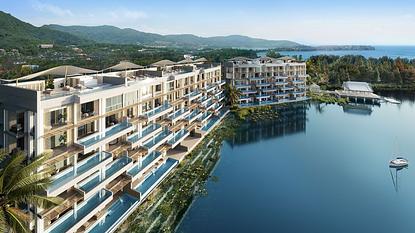Should I buy freehold apartment in Phuket or leasehold condo? Part 1.

Searching for a new condominium prospective buyers immerse into the mysterious world of bureaucratic subtleties of real estate registration. A vast majority of them is unaware of the significant difference in various methods of registration. Let’s try to figure out the differences, advantages and disadvantages.
“Freehold” – a term, used by lawyers, which defines a full ownership right of the object disposal, which is permanent and inalienable, except by the court. The owner carries the responsibility for maintenance and repairs, all such expenses fall on him until the selling of property or another way of change of ownership – gift, inheritance, exchange.
“Leasehold” – is a peculiar method of renting, the period of use of the property is determined by a contract. In Europe most of the lease contracts allow the period of use up to 999 years (right, that is how long they allow many generations of tenants live in one apartment), but in Thailand most of real estate objects are only rented under a 30-year lease contract with two options of renewal.
Leasehold in Phuket
According to the documents, the “leaseholder”-buyer also carries responsibility for the condition of housing, the possibility and procedure of renewal are strictly outlined by the contract. Under Thai law the housing, given to another person for temporary use, becomes illiquid, that is, it cannot be sold in the open market. This just rule vastly facilitates the buyer’s life.
What does the Thai law say about buying a condo
Thailand legal procedures regarding purchase of accommodation are highly specific towards residents of other countries. There are a number of subtleties, for example, a very peculiar difference between terms “apartments–condo”, which are utterly different form these in worldwide practice. Here these two terms, which possess similar meaning in other systems, are completely different. Thus, the local lawmakers defined apartments as some building, the owner of which is an individual and he is the only one who has the ownership certificate or a document of real estate ownership transfer. In condominium each apartment belongs to a specific person and each owner has his ownership certificate.
Foreign real estate, as the Thai law determines, is real estate, which is bought or is temporarily owned by a foreign natural person or another country. Foreigners intending to buy the Thai real estate can perform their deals on terms of leasehold, freehold with a condo ownership certificate and freehold involving buying from the country. The Thai law specifies that 49% of condo freehold units in the house could be sold to foreigners, and a minimum of 51% of condo must belong to Thai citizens.
The 49/51% principle applies to 49% from the total of apartments in a block of flats. Under certain conditions foreigners can acquire the right of ownership of commercial real estate. For many prospective real estate owners differentiating between freehold and leasehold presents a great confusion. Read further for more information about this and decide what to pick for your family and yourself.


